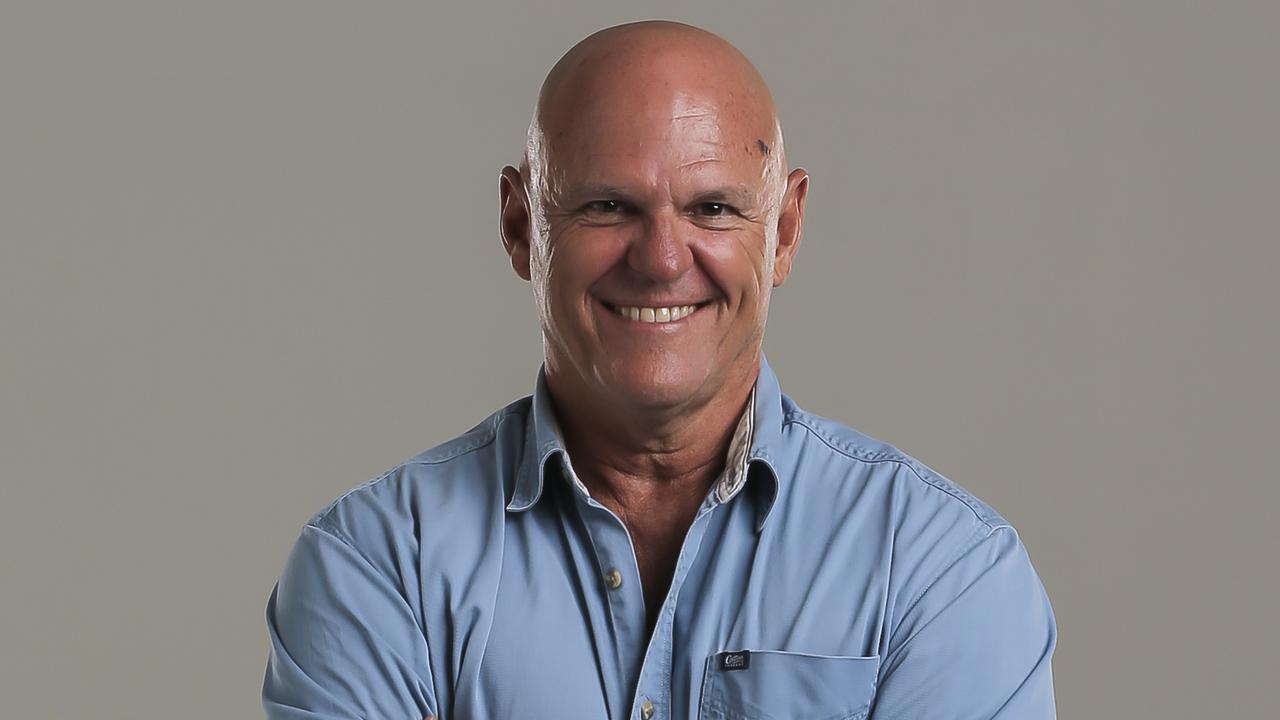Opinion: The Not Now Not Ever report shows we need to change the way we talk and think about violence
OPINION: Once a week, on average, an Australian person dies as a result of this. Why as individuals and as a community do we not give a stuff?

WORDS are powerful and sometimes dangerous tools.
They can be used not only to inflame, assault or demean, but also to distort and diminish.
We tend to forget that language is often the prism through which we view real world events and that a seemingly innocuous adjective can twist our perceptions markedly.
In the context of refugees and asylum seekers for example, placing the word “illegal” in front of “immigrant” serves to demonise; to criminalise the people in question despite the term having no basis in law or fact. Or in the case of theft we often talk of “white collar criminals” – those people who may have embezzled a small fortune through some creative bookkeeping, but end up serving a non-custodial sentence while the bloke who breaks into houses is banged up at Wacol.
The power of a simple word though is perhaps most starkly illustrated when we precede “violence” with the word “domestic”.
Suddenly, and to some extent subconsciously, an act of violence takes on far more complex and nuanced undertones.
As the landmark Not Now, Not Ever report into domestic and family violence in Queensland notes at one point, some of the shortcomings in police responses to domestic violence “come from a culture in some areas that does not give sufficient weight to what is seen as ‘just a domestic’.”
In some respects this is as understandable as it is unacceptable. Look up “domestic” in a thesaurus and you get synonyms such as “family”, “home” and “private”.
The term does carry with it connotations of privacy: if it is a “domestic” matter then it is one occurring inside the seclusion of one’s own home, a matter that perhaps should not be subject to outside interference.
In short, it too often becomes none of our business, when in fact assault and abuse of those least able to defend themselves should be all of our collective responsibility.
In years gone by when I’ve been working on the newsdesk of the paper, I’ve often asked our police rounds reporters on early shift what their morning ring around has brought up from the night before. I couldn’t tell you how many times I’ve heard them reply along the lines of “nothing much, just a few domestics ...”
That “nothing much” actually adds up to (in 2013-14) 66,000 cases of violence reported to Queensland Police or, on average, more than 180 a day.

Australia-wide a woman dies as a result of domestic violence on average once a week, the circumstances of their deaths only ever detailed in the most extraordinary of circumstances because of the legal restrictions on what the media can report (which is precious little when it comes to identifying victim or offender, or often even that the case relates to domestic violence in the first place).
As was the case with child abuse for so many years, it is a scourge largely cloistered behind closed and private doors, often with family, friends, neighbours or colleagues having little or no idea of what is actually occurring – and equally a reluctance to pry into “private” matters.
If the violence, the abuse and the assaults – verbal, physical and sexual – were to be taken out of the “domestic” context to somewhere more exposed to public scrutiny I have little doubt we would have governments declaring a crisis situation.
If a bloke were to half strangle a woman in a pub, or split her face with a powerful backhander there is no question he would be carted off in handcuffs and charged with aggravated assault.
In the family home, however, it can often be a different matter.
The Not Now, Not Ever report notes that often victims feel isolated as family or others able to help “saw it as a private matter and did not want to become involved”.
Or as one contributor put it: “I was married for 34 years before my marriage dissolved (I left my family home terrified of my husband) due to domestic violence. Not one member of my extended family knew of my ‘closed door life’ … ”
And another: “Nobody could help me. Relatives, colleagues and most of our ‘friends’ seemed to turn the blind eye … I guess people told themselves it was none of their business and, anyway, to them he seemed likeable and popular so what I said about him didn’t make sense to them … It was easy for him to isolate me and in the end there was nowhere for me to go.”
Until assault, battery and sometimes suicide as a result of the abuse, become – like child abuse – a matter of widespread community concern rather than unfortunate family circumstances best not discussed, then we will make little progress.
Violence and abuse in the family home is not ultimately a domestic issue at all, but a very public and pressing one.



